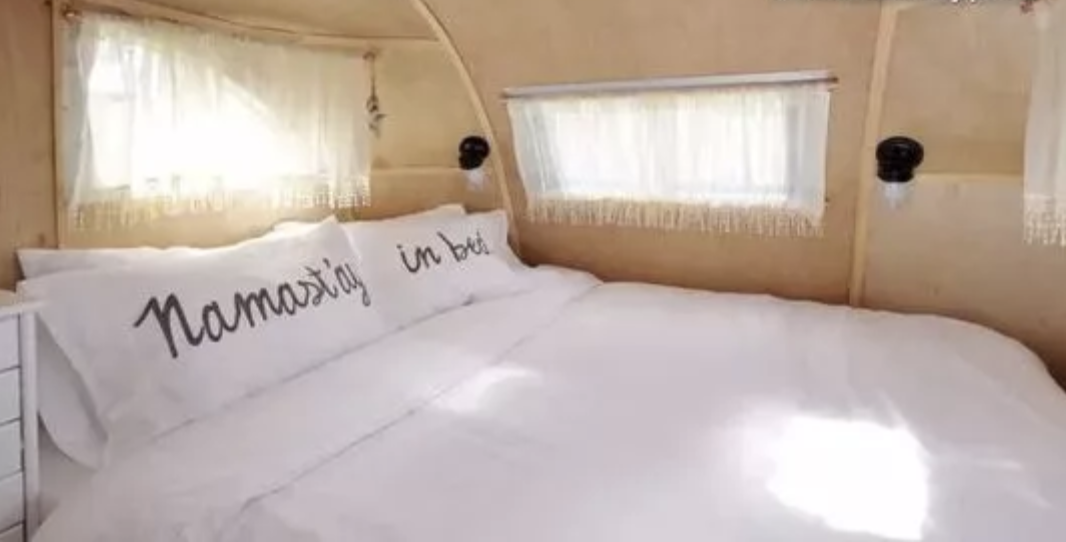Regulations on Airbnb, short-term rentals in Springfield move toward Planning and Zoning Commission

By Alissa Zhu
After a nearly a year of discussion and review, regulations on short-term rentals are moving forward for consideration.
Specifics of the plan are being hammered out by city staff, with guidance from a City Council committee. The bill would require owners to obtain annual business licenses and certificates of occupancy. For certain areas, the city is laying out distance requirements between different short-term rentals.
In January, Springfield’s Planning and Zoning Commission is expected to listen to public comments and decide whether to support the proposal, which would essentially legalize and regulate home rental services operated through online platforms such as Airbnb and VRBO.
The bill, along with the commission’s recommendation of approval or denial, will likely be presented to City Council in February for another public hearing, then a final vote.
Daniel Neal, senior planner with the city, said the city first began hearing complaints a couple of years ago from neighbors living next door to homes being rented out for short-term stays. Around the same time, the state and other cities across the country started talking about regulating those types of businesses.
Neal said on any given day, there are 70 or more short-term rentals available in Springfield.
“We had a lot of concern if this continues to grow, we need to protect the character of our neighborhoods,” Neal said.
A memo from the city’s Planning and Development Department shows the majority of short-term rentals are being advertised in single family homes, located in residential neighborhoods. They’re spread throughout all four quadrants of the city.
At the moment, Neal said, short-term rentals are not authorized by city ordinance. Therefore, they’re illegal. However, the city has chosen to not penalize short-term rental operators, he said.
The proposed regulations would apply to dwellings, or portions of dwellings, that are rented out for periods of less than 30 consecutive days. The bill breaks all short-term rentals into three different categories.
Some requirements apply across the board to all businesses. Other regulations vary, depending on what category the short-term rental falls under.
Violators of the rules could have their business licenses and certificates of occupancy revoked, Neal said.
The rules would be enforced primarily on a complaint basis.
A memo sent to council’s Plans and Policies Committee provided details of the proposed ordinance.
For all short-term stays
- Owners must obtain an annual business license and certificate of occupancy
- Dwellings cannot be rented solely for special events such as receptions, parties or weddings
- Owner must conspicuously post in each rental unit the following information: names and contact information for the operators of the short-term rental, the certificate of occupancy and business license number, restrictions on noise and amplified sound, any parking restrictions, the trash collection schedule and the prohibition on holding special events
- They must comply with existing residential occupancy requirements, which state a dwelling unit may not be occupied by more than three or four unrelated persons, depending on how the property is zoned
Type 1
Short-term rentals that are owner-occupied and located in single-family residences or in single family or townhouse residential zoning districts are considered “Type 1.” They are not rented for more than 95 days total throughout the year.
A type 1 rental must be more than 500 feet “along or across the street” from another short-term rental or bed and breakfast.
Type 2
Short-term rentals that are not owner-occupied and located in single family or townhouse residential zoning districts are considered “Type 2.” They can be rented out any number of days throughout the year.
Type 2 rentals are required to obtain a conditional use permit. To get a conditional use permit, the applicant must go through a neighborhood meeting and public hearings and votes before the Planning and Zoning Commission and City Council.
A type 2 rental also must be more than 500 feet “along or across the street” from another short-term rental or bed and breakfast.
Type 3
Type 3 rentals are allowed in all other zoning districts. There is no residency requirement or limitations on the number of days it can be rented.
No more than two dwelling units within a premise (such as an apartment building) can be used for short-term rentals. That’s so apartment complexes “don’t become de facto hotels,” the memo said.